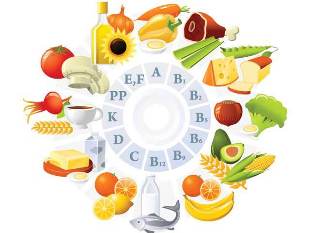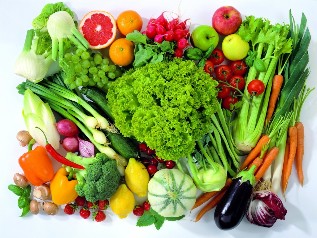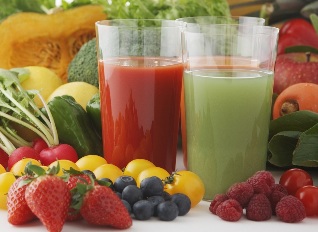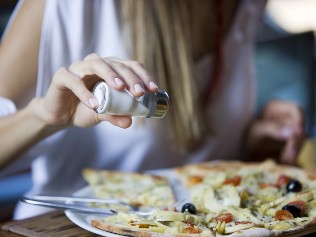Proper nutrition varicose veins plays an important role and is part of the global treatment of the disease. Compliance with specific regulations and the control of the diet not only help to effectively fight against the signs of varicose veins and improve overall health.

Very great restriction in a diet is not the only important thing to make your diet balanced and healthy. The poor diet and the lack of compliance with certain standards in the food can lead to disease exacerbation and significantly slow the healing process.
The vitamins and nutrients with varicose veins
There are a number of vitamins that help to reduce the symptoms and strengthen the walls of veins:
- vitamin C, that are rich in products such as citrus fruits, sea buckthorn, strawberry, wild rose, currant, gooseberry, bell pepper, tomatoes, potatoes, cabbage, parsley, dill;
- rutin, is in the food, such as oranges, lemons, rosehips, black currant, herbal teas, dried fruits and nuts;
- vitamin E contributes to the elasticity of the veins, is abundant in green, onion, beans, onion, vegetable oil, salad, lentils, peas, egg yolk, wheat, liver, vegetable oil;
- tissue for cleaning the body, is contained in fruits and vegetables;
- bioflavonoid – prevent the formation of blood clots, found in cherries;
- the products involved in the synthesis of elastin is lobster, cuttlefish, oysters, prawns, mussels.
What you can and should eat with varicose veins

What products varicose veins the body will bring only benefits and can help stop the disease? The doctors know the answer to this question, and any patient will be able to know what should be in the diet. But very few people who have this disease, I want to follow the rules, even though I know that junk food can have a negative impact on the development of the disease.
Here are some dishes and products which are useful for varicose veins which need to be eaten:
- The green tea and the tea made from black currant leaves contribute to the thinning of the blood and are antioxidants.
- Hash and green soup, cooked without the concentrated beef broth.
- Jam, juice, jelly.
- Seafood is rich in copper, which is involved in the creation of proteins and makes the blood vessels more elastic and resistant.
- Algae contains flavonoids, which are dietary antioxidants, anti-inflammatory and strengthening effect on the small blood vessels – the capillaries.
- Fresh vegetable salad with vegetable oil will help to make the walls of the veins more elastic.
- Beef liver also has a positive effect on the course of the varicose veins.
Certain foods varicose veins useful to significantly reduce the risk of blood clots. These foods include garlic, onion, olive oil, cherry, red currant, lemon. These products thin the blood, which is an important measure of prevention of thrombosis.
Varicose veins avoid constipation, as this condition that increases the load on the veins and develops General intoxication of the organism. Products for varicose veins, which will help to avoid constipation: beets, plums, figs, dried apricots, carrots, plums, apples, bread with bran, yogurt, kefir (a day), brown bread.
What types of drinks are useful for varicose veins

To improve the disease with varicose veins, be sure to observe the drinking regime. Drinking liquids is very useful, because it thins the blood and reduces the risk of blood clots. In addition, the water and healthy drinks are to optimize the water-salt balance in the body.
Useful for varicose veins of green tea, cup of blueberries and cowberry, compotes, fruit and vegetable juices (sea buckthorn, black currant, and chokeberry).
In season watermelon and melon can be consumed in large quantities.
What not to eat with varicose veins
Although the diet with varicose veins of the legs should be varied, from some foods that you should give up or reduce their use to a minimum.
Avoid greasy, fried, spicy and smoked food. These meals make the blood more viscous and increase the risk of thrombophlebitis.
Worth moderate salting of food. Extra salt affects the properties of the blood and leads to edema. Increased viscosity of the blood of several rich broths, meat products, jellies.

To drink coffee and black tea are allowed up to 2 cups a day, and if it is possible, it is better to replace them with green tea or an infusion made from fruits and herbs.
Do not abuse pastries and sweets. This is especially true of patients with obesity, as extra weight creates an increased load on the blood vessels and promote the rapid development of the disease.




































